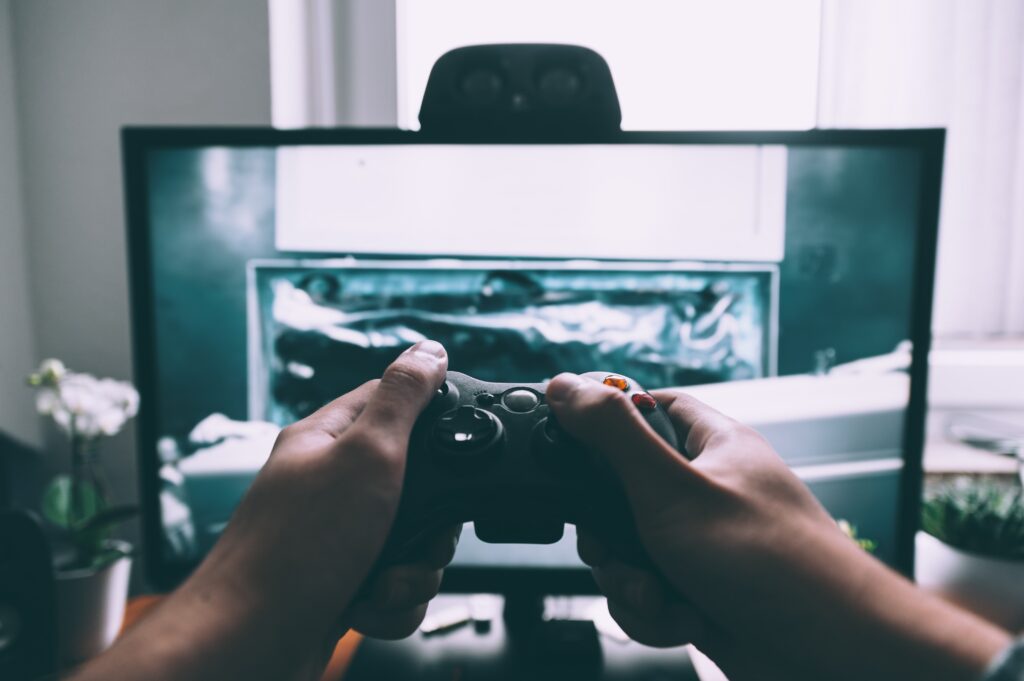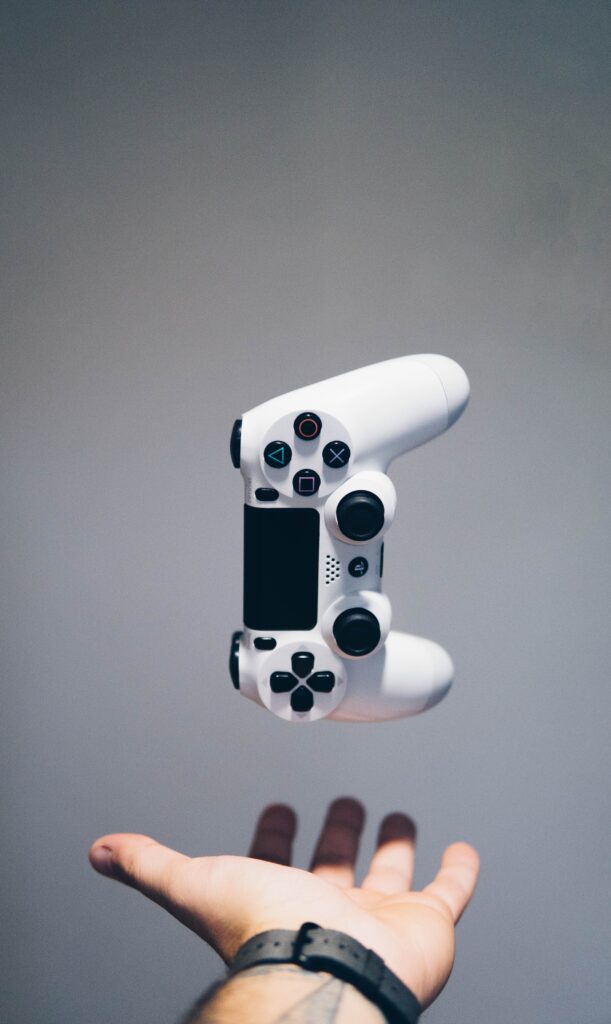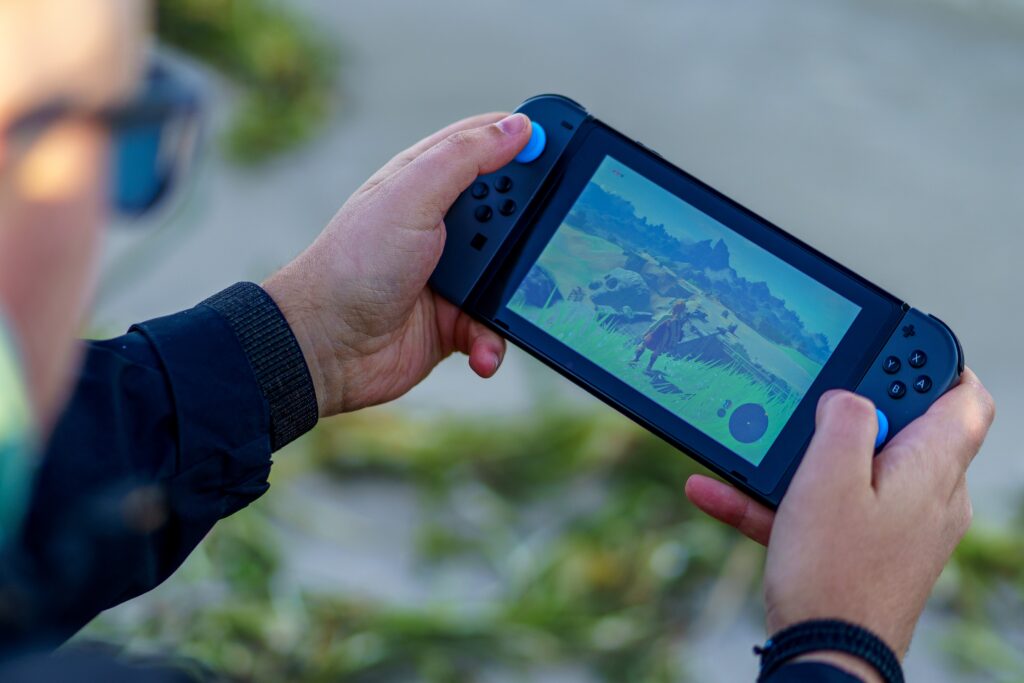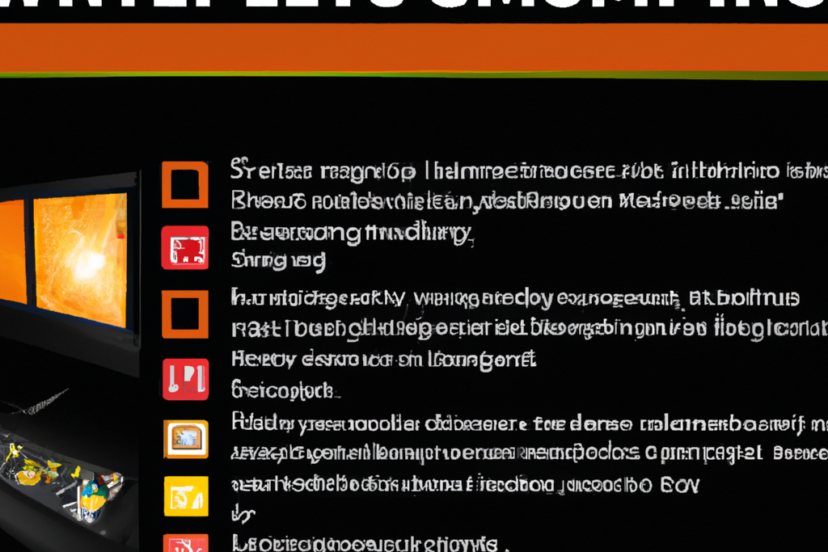How Do You Optimize Windows For Gaming?
How Do You Optimize Windows For Gaming?-So, you’re a gamer looking to take your gaming experience to the next level? Well, optimizing Windows for gaming is just what you need! Whether you’re a casual player or a dedicated gamer, fine-tuning your Windows settings can enhance your gaming performance and smooth out any obstacles that might hinder your gameplay. In this article, we’ll explore some valuable tips and tricks to help you optimize your Windows operating system and maximize your gaming potential. Let’s dive right into it!
H2: Update Windows
To start optimizing your Windows system for gaming, it is crucial to ensure that you have the latest updates installed. Keeping your operating system up to date not only improves its overall performance but also enhances your gaming experience. Here are a few steps to follow:
H3: Check for Windows Updates
To check for Windows updates, simply go to the “Settings” option in the Start Menu and click on “Update & Security.” From there, select the “Windows Update” tab, and click on the “Check for updates” button. Windows will then search for any available updates and prompt you to download and install them. It is recommended to enable automatic updates to ensure that your system stays up to date without manual intervention.
H3: Install the Latest Graphics Drivers
Graphics drivers play a vital role in optimizing your gaming performance. Outdated drivers can lead to poor graphics quality and sluggish gameplay. To update your graphics drivers, visit the website of your graphics card manufacturer, such as NVIDIA or AMD, and download the latest driver version for your specific card model. Alternatively, you can use Windows Update to automatically install the latest drivers for your hardware.
H3: Update DirectX
DirectX is a collection of application programming interfaces (APIs) that enable high-performance multimedia and gaming on Windows systems. To update DirectX, simply visit the official Microsoft website and download the latest version available. Keep in mind that some games may require specific versions of DirectX, so it’s beneficial to have the latest version installed to ensure compatibility and optimal performance.
H2: Adjust Power Settings
Managing your power settings can significantly impact your computer’s performance while gaming. By optimizing your power settings, you can ensure that your system delivers maximum performance when needed. Here’s what you can do:
H3: Choose the High-Performance Power Plan
Windows offers several power plans tailored for different purposes. To optimize your gaming experience, select the “High-Performance” power plan. To access power plans, go to “Control Panel,” click on “Hardware and Sound,” and then select “Power Options.” From there, choose the “High-Performance” power plan. Keep in mind that this power plan may consume more energy, so it’s recommended to switch back to a balanced plan while not gaming.
Maximizing Gaming Performance: A Guide to Setup Optimize Windows For Gaming
H3: Customize Advanced Power Settings
If you want to further customize your power settings, Windows provides the option to adjust advanced power settings. Within the power plan settings, click on “Change plan settings” for your chosen power plan, and then select “Change advanced power settings.” This allows you to modify individual power settings such as processor power management, PCI Express settings, and more. Adjusting these settings according to your specific requirements can help optimize gaming performance.

H2: Optimize Graphics Settings
When it comes to gaming, optimizing your graphics settings can have a significant impact on performance and visual quality. By adjusting in-game graphics settings and using graphics control panels, you can fine-tune your gaming experience. Let’s explore the various options available:
H3: Adjust In-Game Graphics Settings
Most modern games offer a range of graphics settings to accommodate different systems. These settings typically include options to adjust resolution, texture quality, shadow quality, anti-aliasing, and more. It’s best to experiment with these settings to find the right balance between visuals and performance. Lowering certain graphics settings can significantly improve frame rates and reduce stuttering during gameplay.
H3: Use Graphics Control Panels
Graphics manufacturers such as NVIDIA and AMD provide control panels that allow you to further enhance your gaming experience. These control panels offer additional settings and optimizations specific to your graphics card. For NVIDIA users, the NVIDIA Control Panel can be accessed by right-clicking on the desktop and selecting “NVIDIA Control Panel.” AMD users can access the AMD Radeon Software by right-clicking on the desktop and selecting “AMD Radeon Settings.” Take some time to explore these control panels and adjust settings according to your preferences.
H3: Enable Game Mode
Windows 10 introduced a new feature called “Game Mode,” designed to optimize system resources for gaming. Enabling Game Mode prioritizes CPU and GPU usage for the game you’re currently playing, which can help improve performance. To enable Game Mode, press Windows key + G to open the Xbox Game Bar, click on the settings icon (gear-shaped), and toggle the Game Mode switch to “On.”
H3: Disable Vertical Synchronization (Vsync)
Vsync is a setting that synchronizes the frame rate of a game with the refresh rate of your monitor. While Vsync can prevent screen tearing, it can also introduce input lag, which adversely affects responsiveness. If you’re experiencing input lag or want to maximize frame rates, consider disabling Vsync in the graphics settings of your game. Disabling Vsync allows your GPU to render frames as quickly as possible, resulting in smoother gameplay.
H2: Optimize System Performance
Optimizing your overall system performance involves various steps to ensure that your computer operates efficiently while gaming. These optimization techniques focus on reducing unnecessary system load and improving resource allocation. Here are some recommendations:
H3: Close Background Applications
Before launching a game, it’s essential to close any unnecessary applications running in the background. Background applications consume system resources and can impact gaming performance. Right-click on the taskbar and select “Task Manager” to open the Task Manager. From the list of running applications and processes, right-click on any non-essential programs and choose “End Task” to close them. This frees up valuable system resources for your game to utilize.
H3: Disable Windows Visual Effects
Windows offers various visual effects that enhance the overall interface but consume system resources. Disabling or minimizing these visual effects can significantly improve gaming performance. To adjust visual effects, go to “Control Panel” and search for “Performance” in the search box. Click on “Adjust the appearance and performance of Windows.” From the “Visual Effects” tab, choose the “Adjust for best performance” option or manually disable specific visual effects to prioritize gaming performance.
H3: Clean Temporary Files
Over time, temporary files can accumulate on your system, occupying valuable storage space and potentially slowing down your computer. Cleaning these files can free up disk space and optimize system performance. To clean temporary files, press Windows key + R to open the Run dialog box. Type “%temp%” (without quotes) and press Enter. This opens the Temporary Files folder. Select all files and folders within the folder and press the Delete key to remove them permanently. Repeat the process with the “Prefetch” folder as well.
H3: Manage Startup Programs
When you start your computer, several programs may automatically launch in the background, consuming system resources. Managing startup programs can help minimize resource usage and improve overall performance. To manage startup programs, press Ctrl + Shift + Esc to open the Task Manager. From the Task Manager, navigate to the “Startup” tab. Here, you’ll find a list of programs that launch at startup. Right-click on any unnecessary programs and select “Disable” to prevent them from running on startup.
H3: Upgrade Hardware Components
If your system is struggling to meet the demands of modern games, it may be time to consider upgrading your hardware components. Upgrading key components such as the CPU, GPU, and RAM can significantly enhance gaming performance. However, before investing in new hardware, ensure compatibility with your current system and consider seeking professional advice if needed.

H2: Monitor System Temperature
Overheating can severely impact gaming performance and even lead to system instability. Monitoring your system temperature is crucial to ensure optimal performance and avoid hardware damage. Here’s how you can do it:
H3: Use System Monitoring Tools
There are several reliable system monitoring tools available that allow you to keep an eye on your system’s temperature and other vital parameters. Popular tools like MSI Afterburner and SpeedFan provide real-time monitoring of critical components, including CPU and GPU temperatures. Ensure that your components remain within safe temperature ranges to prevent thermal throttling and potential hardware issues.
H3: Clean Dust and Ensure Proper Ventilation
Over time, dust and debris can accumulate inside your computer, obstructing airflow and causing components to overheat. Regularly cleaning your computer, especially the fans and air vents, helps ensure proper ventilation and reduces the risk of overheating. Use compressed air or a soft brush to gently remove dust from these areas. Additionally, make sure that your computer is positioned in a well-ventilated area, allowing air to flow freely around it.
H2: Disable Resource-Intensive Processes
To maximize gaming performance, it’s essential to identify and disable any resource-intensive processes that may be running in the background. By disabling unnecessary processes, you can free up system resources and dedicate them solely to your game. Here are a few steps to consider:
H3: Disable Windows Defender
While antivirus protection is crucial, Windows Defender can sometimes consume significant system resources, impacting gaming performance. If you have a reputable third-party antivirus software installed, you can consider disabling Windows Defender. To do this, go to “Settings,” click on “Update & Security,” select “Windows Security,” then click on “Virus & threat protection.” From there, click on “Manage settings” and toggle off the “Real-time protection” option.
H3: Stop Background Tasks and Services
Windows may run various background tasks and services that can tax your system’s resources. Disabling unnecessary tasks and services can enhance gaming performance. To manage background tasks and services, press Ctrl + Shift + Esc to open the Task Manager. From the Task Manager, navigate to the “Processes” and “Services” tabs. Right-click on any non-essential tasks or services and select “End Task” or “Stop,” respectively, to temporarily disable them.
H3: Pause OneDrive Sync
OneDrive, Microsoft’s cloud storage service, often runs in the background, syncing files and consuming system resources. Pausing OneDrive sync while gaming can free up resources. Right-click on the OneDrive icon in the system tray and select “Pause syncing.” Choose the desired duration to halt sync temporarily. Remember to resume syncing when you’re done gaming to ensure that your files are backed up to the cloud.
H3: Disable Windows Search
Although the Windows Search feature is useful for quickly finding files and applications, it can run background indexing processes that consume system resources. Temporarily disabling Windows Search can help improve gaming performance. Open the “Services” application by pressing Windows key + R, typing “services.msc,” and pressing Enter. Locate the “Windows Search” service, right-click on it, and select “Properties.” From the “Startup type” dropdown menu, select “Disabled.” Click on “Apply” and then “OK” to save the changes.

H2: Optimize Game Settings
In addition to optimizing your system for gaming, it’s crucial to optimize the individual game settings to achieve the best possible performance. Here are a few steps you can take:
H3: Check for Game Updates
Game developers often release updates that address performance issues, bugs, and other optimizations. Ensuring that your game is up to date can help improve overall performance and stability. Most games have an “Update” or “Check for Updates” option within their settings or main menu. Alternatively, you can visit the game developer’s official website or the gaming platform’s store, such as Steam or Epic Games Store, to manually download the latest updates.
H3: Adjust In-Game Settings
Just like adjusting in-game graphics settings mentioned earlier, tweaking other settings within the game can also enhance performance. Options such as resolution, field of view, shadows, and effects can be adjusted to find the right balance between visuals and performance. Lowering certain settings can significantly improve frame rates, especially if your system is struggling to handle the game’s requirements.
H3: Install Mods and Patches
In many cases, the gaming community creates mods and patches that can further optimize games or fix specific performance-related issues. These user-created modifications can enhance graphics, streamline gameplay, and improve overall performance. Before installing any mods or patches, ensure that they are compatible with your game version and follow the installation instructions provided by the mod creators.
H3: Optimize Network Connection
For online gaming, a stable and optimized network connection is crucial for a lag-free experience. There are several steps you can take to optimize your network connection:
- Connect your PC to the router using an Ethernet cable rather than relying on a Wi-Fi connection.
- Ensure that your router firmware is up to date for optimal performance and security.
- Prioritize your game’s network traffic over other applications and devices using Quality of Service (QoS) settings on your router.
- Close any bandwidth-intensive applications or downloads running in the background that may impact your network performance.
- Consider using a virtual private network (VPN) to reduce latency and protect your online gaming sessions.
H2: Use Gaming Performance Optimization Tools
In addition to the built-in Windows optimizations, there are various third-party tools available that specialize in optimizing gaming performance. These tools offer additional features and optimizations tailored specifically for gaming. Here are a few notable tools worth considering:
H3: Windows Game Mode
As mentioned earlier, Windows Game Mode helps optimize system resources for gaming. It can be activated by pressing Windows key + G to open the Xbox Game Bar, then clicking on the settings icon (gear-shaped), and toggling the Game Mode switch to “On.” Activating Game Mode prioritizes your game’s resource allocation, resulting in improved gaming performance.
H3: NVIDIA GeForce Experience
If you have an NVIDIA graphics card, GeForce Experience is a valuable tool that can optimize your game settings automatically. It analyzes your system configuration and recommends optimal graphics settings for supported games. It also provides driver updates and game-related news. You can download GeForce Experience from the official NVIDIA website and enjoy its benefits for a smooth gaming experience.
H3: AMD Radeon Software
Similar to NVIDIA’s GeForce Experience, AMD offers Radeon Software, a suite of tools designed to optimize performance for AMD graphics card users. Radeon Software provides features like game-specific optimizations, driver updates, and performance monitoring. By downloading and installing Radeon Software from the official AMD website, you can unlock additional functionality and enhancements for your gaming setup.
H3: Third-Party Optimization Tools
There are numerous third-party optimization tools available that focus specifically on improving gaming performance. These tools offer a range of features such as game-specific optimizations, system tuning, driver updates, and more. Examples include Razer Cortex, Wise Game Booster, and MSI Dragon Center. Before using any third-party tool, ensure that it comes from a reputable source and read reviews from other users to gauge its effectiveness.

H2: Maintain System Health
Regular maintenance and care are vital to keep your system in optimal condition for gaming. Here are a few steps you can take to ensure the health and longevity of your gaming setup:
H3: Perform Regular Disk Cleanup
As mentioned earlier, cleaning temporary files is essential for freeing up disk space and optimizing system performance. It’s recommended to perform regular disk cleanup to remove unnecessary files from your system. Windows provides a built-in Disk Cleanup tool that you can access by searching for “Disk Cleanup” in the Start Menu. Follow the prompts to clean up various categories of temporary files and other unnecessary data.
H3: Run Regular System Security Scans
Protecting your system from malware is crucial for its overall health and safety. Running regular system security scans ensures that your system remains free from any harmful threats. Windows offers in-built security features such as Windows Defender, which provides real-time protection against viruses and malware. It’s important to keep Windows Defender (or any other reputable antivirus software) updated and perform regular system scans to detect and remove any potential threats.
H3: Keep Drivers and Software Updated
To maintain optimal performance and compatibility, it’s essential to keep your drivers and software up to date. Outdated drivers can lead to performance issues and potential incompatibilities with games. Regularly check for updates on the manufacturer’s website for your hardware components, such as graphics card, sound card, and network adapter. Additionally, ensure that your games, gaming platforms, and other software are also kept updated to benefit from any performance optimizations and bug fixes.
H2: Troubleshoot Performance Issues
Even with the best optimizations in place, you may encounter performance issues while gaming. Troubleshooting these issues can help identify and resolve any underlying problems. Here are a few troubleshooting steps you can take:
H3: Identify Hardware Bottlenecks
If your system is struggling to handle a specific game, it’s important to identify if any hardware components are causing a bottleneck. Monitor your CPU and GPU usage during gameplay using system monitoring tools. If one of these components is consistently maxed out or nearing its limits, it may be time to consider upgrading that particular component for improved gaming performance.
H3: Check for Thermal Throttling
Thermal throttling occurs when your hardware components exceed safe operating temperatures and automatically reduce their performance to prevent damage. High temperatures can result in decreased gaming performance and potential instability. Use system monitoring tools to monitor your CPU and GPU temperatures during gameplay. If you notice temperatures consistently reaching unsafe levels, cleaning your computer and improving ventilation may be necessary. Additionally, consider replacing thermal paste or upgrading your cooling system if the issue persists.
H3: Verify Game Compatibility
Before troubleshooting performance issues, ensure that your games are compatible with your system’s hardware and software specifications. Review the system requirements for each game, comparing them with your computer’s specifications. If your system falls short of meeting the minimum requirements, it may be challenging to achieve satisfactory performance. In such cases, consider upgrading relevant hardware components or opting for less demanding games.
H3: Resolve Game-Specific Issues
Some games may have specific performance issues that require individual troubleshooting steps. It’s recommended to visit the game’s official forums, community pages, or support websites for troubleshooting guides, patches, or updates provided by the game developers. These resources often contain helpful information and solutions for common game-specific performance issues.
Optimizing your Windows system for gaming involves a combination of software tweaks, hardware upgrades, and maintaining system health. By following the outlined steps, you can significantly enhance your gaming experience, ensuring smooth gameplay, improved graphics quality, and overall better performance. Remember to tailor these optimizations to your specific system and gaming preferences, as every setup is unique. Happy gaming!





